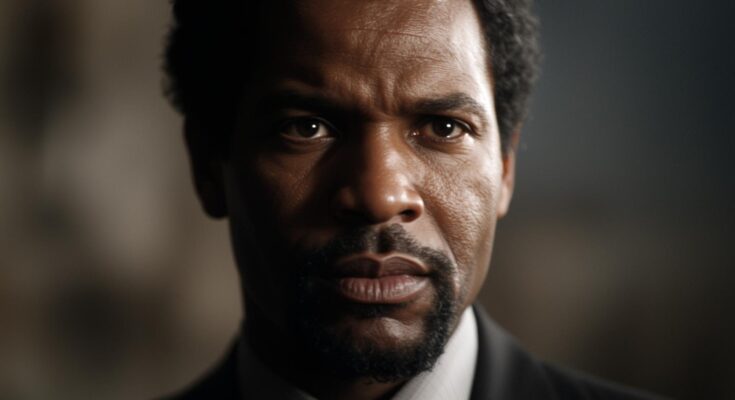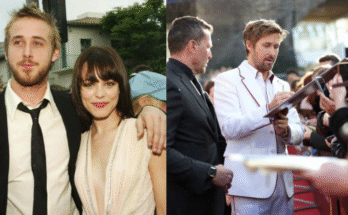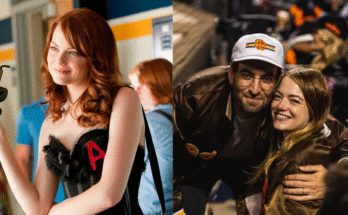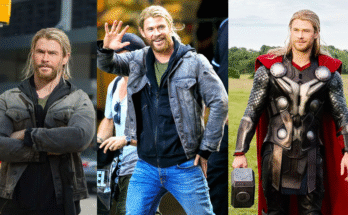The Greatest Actor of Our Time
In 2020, The New York Times named Denzel Washington the greatest actor of our generation. This wasn’t a sentimental choice or a nod to longevity. It was a measured assessment of an actor who has consistently delivered performances of extraordinary power, intelligence, and moral depth across nearly five decades. Denzel Hayes Washington Jr. (born December 28, 1954) is far more than a Hollywood star—he is a cultural force, a mentor, and a model for how to navigate success with integrity, humility, and purpose.
Known for his dramatic roles on stage and screen, he has received numerous accolades including two Academy Awards, three Golden Globe Awards, and one Tony Award as well as nominations for a Grammy Award and two Emmy Awards. But numbers don’t capture what makes Denzel Washington extraordinary. What matters is how he has fundamentally altered perceptions about race, casting, and excellence in American cinema.
From Mount Vernon to the World Stage: Origins and Influence
Denzel Hayes Washington Jr. was born in Mount Vernon, New York, on December 28, 1954. His mother, Lennis “Lynne” (Lowe), was a beauty parlor owner and operator born in Georgia and partly raised in Harlem, New York. His father, Denzel Hayes Washington Sr., a native of Buckingham County, Virginia, was an ordained Pentecostal minister who was also an employee of the New York City Water Department.
Growing up in a predominantly African-American suburb, young Denzel had witnessed many of his friends take up the path of drugs, crime and violence. He is certain that he too would have ended up like them had it not been for his mother, a poor single parent, who sent him to Oakland Military Academy to learn some discipline.
When his parents divorced at age 14, his life took a pivotal turn. Rather than allowing him to drift, his mother sent him to a boarding school in upstate New York—specifically to a military academy. This decision, made out of love and tough parental wisdom, gave young Denzel structure, discipline, and crucially, distance from destructive influences.
Determined to make something worthy of his life, the boy completed high school and studied journalism at Fordham University before embarking on a professional acting career. But his path to acting wasn’t linear. He initially pursued pre-med studies at Fordham, then switched to journalism, searching for his calling. It was only in the theater program that he found it. Once he appeared in student drama productions, there was no turning back.
After graduating from Fordham University in 1977, Washington moved to San Francisco and enrolled at the American Conservatory Theater, one of the nation’s most prestigious acting schools. He left after only one year to seek work as an actor, demonstrating an impatience characteristic of true artists—a desire to begin working, to test oneself in real productions rather than endless workshops.
His first paid acting role was in a summer stock theater stage production in St. Mary’s City, Maryland. The play was “Wings of the Morning,” about the founding of the colony of Maryland. It was humble, unglamorous, and absolutely essential. Every successful actor begins in such obscurity.
Early Career: Theater Foundation and Television Breakthrough

Washington’s early professional years were spent in theater, where he built an iron foundation for his craft. He performed in theater productions such as Ceremonies in Dark Old Men and Shakespeare’s Othello with The Public Theatre in New York. He made his Broadway debut in the Ron Milner play Checkmates (1988).
This theater background proved invaluable. Theater demands precision, presence, and the ability to sustain emotional truth across an entire performance. You cannot hide on a stage—audiences know immediately if you’re authentic or faking. Washington’s theater work gave him tools that would serve him throughout his film career.
Washington’s feature-film debut was the 1981 comedy Carbon Copy, in which he plays the illegitimate African American son of a white business executive played by George Segal. The role was small, but it placed him on film. He appeared in television movies like Wilma (1977) and Flesh & Blood (1979), but these were minor parts—the necessary precursors to stardom.
The breakthrough came in 1982 when Washington landed a regular role in the NBC medical drama St. Elsewhere as Dr. Phillip Chandler. For six seasons (1982-88), Washington appeared on one of television’s most respected programs. He worked opposite Donald Westlake and other distinguished actors, learning his craft in front of millions of viewers weekly. The role proved to be the breakthrough in his career—not because it was glamorous, but because it established him as a talented, reliable, and charismatic presence in American homes.
The Rise: Critical Acclaim and Oscar Recognition
Throughout the 1980s, Denzel began taking roles that showcased his range and intelligence. His dramatic power emerged slowly, deliberately, in films that mattered.
In the 1984 drama A Soldier’s Story, Washington played Private First Class Melvin Peterson. The film was an adaptation of the Off-Broadway play A Soldier’s Play (1981–1983) in which Washington had earlier portrayed the same character. The role demonstrated his commitment to complex characters and his ability to bring dignity to military and working-class figures.
For the film Cry Freedom (1987), he portrayed South African activist Stephen Biko, and he received an Academy Award nomination for best supporting actor. The role required him to embody a real historical figure—a political activist murdered by apartheid authorities. Washington’s performance captured not just Biko’s defiance, but his vulnerability, his humor, and his humanity.
Two years later he won the Oscar for best supporting actor for his performance as a formerly enslaved man fighting in the Union army in the American Civil War film Glory (1989). As Private Trip, a formerly enslaved man who becomes a soldier in a segregated Union regiment, Washington delivered a performance of raw power. The character’s journey from enslaved person to soldier—from having no right to his own life to fighting for a nation’s future—could have been sentimental or heavy-handed in lesser hands. In Washington’s hands, it was transcendent.
The Academy Award recognized not just this single performance, but established Washington as a major dramatic actor. He was no longer a talented supporting player—he was a star capable of carrying films and commanding attention.
The 1990s: Artistic Peak and Moral Authority

Washington’s astonishing skill and range as an actor and his popular appeal as a leading man were firmly established in the 1990s. This was his artistic peak, though to say so might undervalue his later work. It’s more accurate to say this was when his genius first became undeniable to even the most skeptical critics.
Malcolm X (1992)
Washington was reunited with Spike Lee to play one of his most critically acclaimed roles, the title character of the historical epic Malcolm X (1992). The New York Times gave the film its Critic’s Pick with Vincent Canby declaring, “In Denzel Washington it also has a fine actor who does for ‘Malcolm X’ what Ben Kingsley did for ‘Gandhi.’ Mr. Washington not only looks the part, but he also has the psychological heft, the intelligence and the reserve to give the film the dramatic excitement.”
The role of Malcolm X demanded everything from an actor. Malcolm’s journey—from street hustler to Nation of Islam activist to independent civil rights leader—required Washington to show transformation while maintaining psychological consistency. His performance as the Black nationalist leader earned him an Academy Award nomination for Best Actor.
What made this performance remarkable was Washington’s refusal to simplify Malcolm X. He showed the man’s arrogance and his genuine spirituality, his rage and his ultimate openness to reconciliation, his flaws and his nobility. It was a portrait of a complex human being rather than a political icon.
Philadelphia (1993)
The next year, he played the lawyer defending a gay man with AIDS played by Tom Hanks in the Jonathan Demme film Philadelphia (1993). The role was crucial to the film’s impact—Washington played the African American lawyer who overcomes his own homophobia and societal prejudice to defend Tom Hanks’ character’s legal rights. Tom Hanks said working with Washington on Philadelphia was like “going to film school”. Hanks said he learned more about acting by watching Denzel than from anyone else.
The fact that Tom Hanks—one of the greatest actors of his generation—described learning from Denzel speaks to Washington’s mastery. Washington brought such intelligence, such careful calibration of emotion and judgment to the role, that simply watching him act was a master class.
The 1990s: Diversity and Mastery
Throughout the 1990s, Washington continued to diversify his roles. In 1995, he starred as Lieutenant Commander Ron Hunter in Crimson Tide, an action thriller set in post-Soviet Russia during a period of political turmoil. He proved he could anchor intelligent action films, bringing substance to commercial entertainment.
In The Hurricane (1999), he portrayed Rubin Carter, a boxer arrested for triple homicide. The role required physical transformation—Washington trained to move like a boxer, to carry the rage and dignity of a man wrongly imprisoned. He won a Golden Globe and earned another Academy Award nomination.

What’s remarkable about Washington’s 1990s work is the consistency of quality and the refusal to repeat himself. Each role was a departure. Each demanded different skills, different physical presences, different emotional registers.
The 2000s and 2010s: An Unstoppable Force
Training Day (2001) – The Oscar Victory
He won the Academy Award for Best Actor in a Leading Role in 2001 for his role of Detective Alonzo Harris in the crime drama, Training Day. The role was transformative—a corrupt Los Angeles police detective mentoring a naive younger cop. Washington’s Harris was charismatic, seductive, predatory. He was terrible and compelling. The performance demonstrated that Washington could make audiences invest in a morally reprehensible character.
In an interview, Washington noted: “Despite the acclaim he garnered for acting as the hero, he finds being the villain much more enjoyable.” The villain role allowed Washington to explore aspects of human nature different from the noble figures he’d often played. Harris was a man whose intelligence and charm served his corruption rather than his virtue. It was a masterclass in playing antagonists with nuance rather than caricature.
Continuing Excellence: The 2000s
Washington frequently collaborated with producer Jerry Bruckheimer and director Tony Scott. The film was his fifth and final collaboration with director Tony Scott, following Crimson Tide (1995), Man on Fire (2004), Déjà Vu (2006) and The Taking of Pelham 1 2 3 (2009). These collaborations demonstrated Washington’s ability to anchor intelligent action films, bringing substance to commercial entertainment.
He demonstrated his range with films like:
Man on Fire (2004) – A grieving former assassin seeking revenge
Inside Man (2006) – A sophisticated crime thriller
American Gangster (2007) – Playing a DEA agent pursuing a drug kingpin

In 2012, Washington starred in Flight (2012), for which he was nominated for an Academy Award for Best Actor. The role of airline pilot Whip Whitaker—a man struggling with addiction while hailed as a hero—allowed Washington to explore vulnerability and moral complexity. The performance earned him critical acclaim and demonstrated his continued artistic growth.
Remember the Titans and Beyond
He coached Coach Herman Boone in Remember the Titans (2000), a film about integrating a high school football team in Virginia. The role allowed Washington to embody a real historical figure—a coach whose decency and intelligence helped heal racial divisions. It was inspirational cinema, but Washington never allowed it to become sentimental.
The Stage: Broadway Triumphs
Washington has insisted that stage work remains central to his identity as an actor. He won the Tony Award for Best Actor in a Play for his role as Troy Maxson in the Broadway revival of August Wilson’s play Fences (2010). He played a disillusioned working class father—a man trapped by circumstance, struggling with his own failures, unable to express love effectively to his son.
The role was challenging because it offered little sentiment. Troy is not a likeable character. He makes terrible choices. He hurts people. Washington’s task was to make audiences understand him without liking him, to see the tragedy of his circumstances without excusing his behavior. He succeeded magnificently.
Washington also appeared in Shakespeare’s Julius Caesar (2005) and Othello (2025), Lorraine Hansberry’s A Raisin in the Sun (2014), and Eugene O’Neill’s The Iceman Cometh (2018), the latter of which earned him another Tony Award nomination.
Beyond Acting: Mentor and Moral Force
What distinguishes Denzel Washington from other actors of his stature is his commitment to mentoring younger talent and using his platform for social good.
Washington has influenced and mentored numerous actors such as Chadwick Boseman, Mahershala Ali, Michael B. Jordan, Jamie Foxx, Will Smith, Jake Gyllenhaal, Austin Butler, and Glen Powell. These are not casual professional acquaintances—these are actors he has deliberately guided and supported.
Perhaps most famously, he helped pay for actor Chadwick Boseman to attend a summer theater program at The University of Oxford when Boseman was a student at Howard University. This act of generosity—a major star paying for a struggling young actor’s education—demonstrates Washington’s commitment to developing the next generation.

He made a $1 million donation to allow the Wiley College Debate Team to be re-established after his work on the film “The Great Debaters.” He has spent substantial time and money supporting The Fisher House Foundation, Brooke Army Medical Center and The Nelson Mandela Children’s Fund. He has served as spokesperson for the Boys and Girls Clubs of America—the very organization that had been crucial to his own survival as a young person.
The Artistic Philosophy: Work Ethic and Integrity
Washington has been explicit about his philosophy of acting and success:
“You get a part. You play a part. You play it well. You do your work and you go home. And what is wonderful about movies is that once they’re done, they belong to the people. Once you make it, it’s what they see. That’s where my head is at.”
“Acting is just a way of making a living, the family is life.”
And perhaps most profoundly: “I’m very proud to be black, but black is not all I am. That’s my cultural historical background, my genetic makeup, but it’s not all of who I am nor is it the basis from which I answer every question.”
These statements reveal a man who understands that while his race and heritage are fundamental to his identity, he refuses to be limited by external definitions. He is an actor who happens to be Black, not a “Black actor.” This distinction—which might seem semantic—is philosophically crucial. It asserts his right to be full, complex, multidimensional.
The Scorsese Regret and Professional Wisdom
Washington has spoken about turning down Brad Pitt’s role in Se7en (1995), telling Entertainment Weekly that the film was too “dark and evil.” He later regretted this decision upon seeing a screening. The anecdote is revealing—even an actor of Washington’s caliber has moments of doubt, makes choices he later questions. What’s important is that he acknowledged the mistake openly rather than rationalizing it.
It also reveals something about Washington’s choices throughout his career. He has generally favored roles with moral complexity but ultimate redemption. He has preferred characters who struggle with darkness but maintain fundamental decency. This isn’t a limitation—it’s an artistic choice reflecting his values.
The Awards and the Record

Washington is the first African-American actor to receive two Academy Awards. He has received numerous accolades including two Academy Awards, a Tony Award, three Golden Globe Awards, a Screen Actors Guild Award and two Silver Bears. He has also received nominations for a Grammy Award and two Primetime Emmy Awards. Washington has also received numerous honorary awards such as the Stanley Kubrick Britannia Award in 2007, the Golden Globe Cecil B. DeMille Award in 2016 and the AFI Life Achievement Award in 2019.
He is also a 13-time NAACP Image Award winner with four consecutive wins in the Outstanding Actor in a Motion Picture award category from 1993 to 1997 and again from 2000 to 2003.
In 2020, he received the Presidential Medal of Freedom, the nation’s highest civilian honor.
The Cultural Impact: Breaking Barriers
Washington’s career has fundamentally altered American cinema. His sustained success and critical acclaim have demolished the outdated perception that African American actors could not draw mainstream white audiences. He proved that exceptional talent transcends racial categories, that audiences will embrace excellence regardless of the actor’s race, and that films with Black leads and Black themes can achieve both critical and commercial success.
Prior to Washington, there was a narrative in Hollywood that certain types of films—dramas, prestige pictures, blockbusters—required white stars to reach mainstream audiences. Washington shattered this assumption through sustained excellence and commercial success. He opened doors for generations of Black actors who came after him.
But perhaps more importantly, he established a model for how to navigate this success. He never played the victim. He never demanded sympathy for having to break barriers. He simply did extraordinary work and let that work speak for itself.
The Complete Package: Actor, Director, Producer
Washington has also worked behind the camera. He directed Antwone Fisher (2002), about a young sailor seeking to understand his traumatic past. He produced and directed the film adaptation of August Wilson’s Fences (2016), in which he also starred alongside Viola Davis. These works demonstrate his commitment to stories that matter—stories about African American experience, stories about redemption and recovery.
Conclusion: The Man, the Legend, the Mentor
Denzel Washington stands at the pinnacle of American cinema achievement. In 2020, The New York Times named him the greatest actor of our generation. This assessment captured something true about his art—the consistency of his excellence, the depth of his intelligence, the power of his presence.
But perhaps what matters most is not the awards or the accolades, but the model he has provided. He has demonstrated that success doesn’t require compromising integrity. That excellence can be achieved without arrogance. That mentoring others is more important than protecting your status. That using your platform for good is not distracting from your art—it’s central to it.
Washington has been explicit: “Acting is just a way of making a living, the family is life.” This hierarchy—where family comes before career, where service comes before self-aggrandizement—is counterculture in an industry built on ego. Yet it’s precisely this commitment to priorities beyond himself that has made him so respected, so influential, so beloved.
At seventy years old, Denzel Washington continues to work, to challenge himself, to mentor younger actors. He is not resting on past achievements. He is not phoning in performances. He remains one of cinema’s most vital forces.
His journey from Mount Vernon to the world stage, from helping his mother at her beauty salon to commanding the silver screen, represents not just personal achievement but cultural transformation. He has made it possible for African American actors to aspire to the highest levels of the craft. He has provided a model of how to maintain dignity, integrity, and authenticity in an industry designed to strip all three away.
“The only thing that separates you and me is opportunity.” – Denzel Washington
He has spent his career creating opportunities for others, opening doors, mentoring the next generation. Perhaps this—more than any award or achievement—is his greatest legacy. He has not just acted with excellence. He has led with grace.



